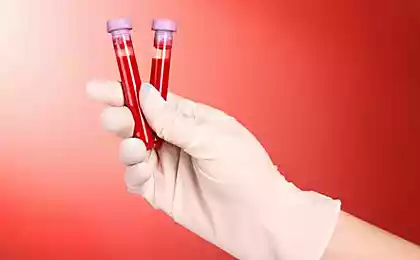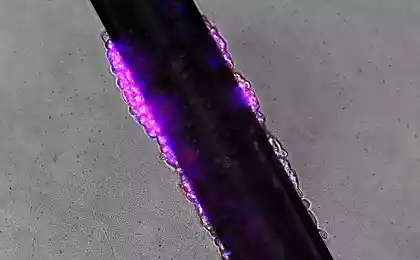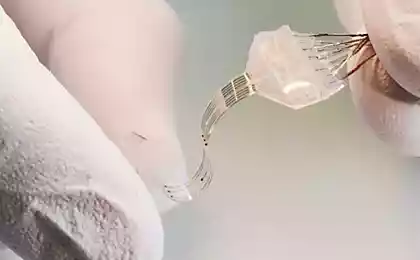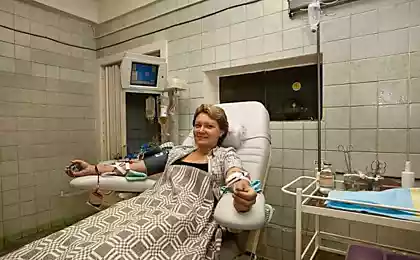1155
Implant under the skin for remote blood test
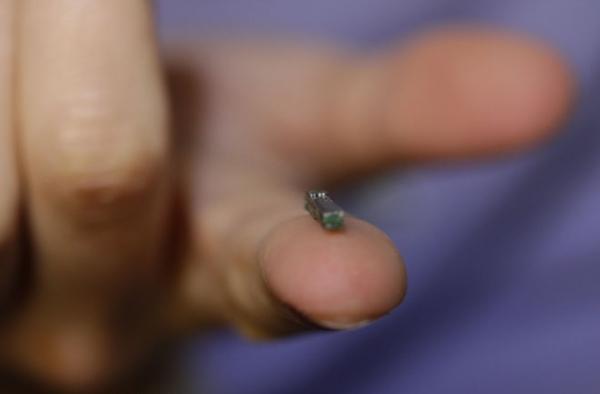
Thanks to the new tiny implants in the future, the problem with the delivery of analyzes will be solved.
A team of scientists from the Federal Polytechnic Institute of Lausanne (EPFL) have developed a miniature electronic device that can be implanted under the skin to provide immediate analysis of the substances found in the blood.
With this device the doctor of the future will be able to explore the organic acids in your body, in this case, the results of the research will be immediately transferred to the computer, which will be analyzed by a doctor.
EPFL scientists under the direction of Giovanni de Micheli (Giovanni de Micheli) and Sandro Kerrera (Sandro Carrara), the team says that the device will allow doctors to better monitor patients, especially those with chronic diseases or undergoing chemotherapy.
Despite its tiny size, (a device about the size of half an inch), it includes five sensors, coils for wireless and power small electronics that emit radio frequency secure.
"The idea is to form the final appearance of the device, the implant should be such that it would be using a syringe it can be inserted under the skin surface", said publication Kerrera Discovery News. "It can be safely removed, it should just pull the tape».
Each sensor is covered with special enzymes that help in the identification of specific substances in the body, such as lactate, glucose and ATP.
"We also found bilirubin, dopamine and other neurotransmitters, such as glutamate," says Kerrera. "The power of this device is that it provides for the simultaneous detection of several metabolites simultaneously».
Once the sensor collects all the data and information can be transmitted from the implant via Bluetooth on the smartphone of the patient, the results will be immediately transferred to the doctor. Thus, physicians can remotely monitor conditions and fine-tune the equipment for future diagnosis and treatment.
"This implant will provide ongoing care of the patient, we will be able to monitor his condition, day and night, with only a slight discomfort for him", said by e-mail De Micheli.
Enzymes, which cover devices have a limited life. Kerrara said that his team was able to create sensors that can last for more than two months, and this time should be sufficient for research to be conducted. Once the enzymes degrade the quality, the device can be easily removed or replaced with another implant with fresh enzyme.
One of the biggest problems when creating sensors became his sensitivity. "The loss of area (tiny size device) directly implies the loss of power," says Kerrera. "Nanobioelectronics was used to increase the sensitivity of the sensor and the development of low-noise electronics, to give us the opportunity to get a reliable signal».
The implant may be particularly useful for use with cancer patients undergoing chemotherapy. Oncologists commonly used blood tests to measure the tolerance of the patient to a specific dose. De Micheli believes that this device can provide a more precise definition of research and patient tolerance.
"In cases of chronic patients or patients who require continuous monitoring," said Kerrera: "The doctor can directly receive regular notifications on your smart phone or iPod.»
Experts say that the world's first device designed small enough size that can provide all the facilities for monitoring several molecules simultaneously.
"Implants are now available on the market, capable of processing only the mechanical or electrical signals," he said. "Other devices can only detect glucose.»
The device is still in the phase of the prototype, and has been tested only in animals, however, further studies on the optimistic estimate scientists must also show good results. If the implant establish itself with the best hand, it will be available for the past four years.
Results of the study were recently published and presented at DATE 13, the largest conference devoted to electronics in Europe.













